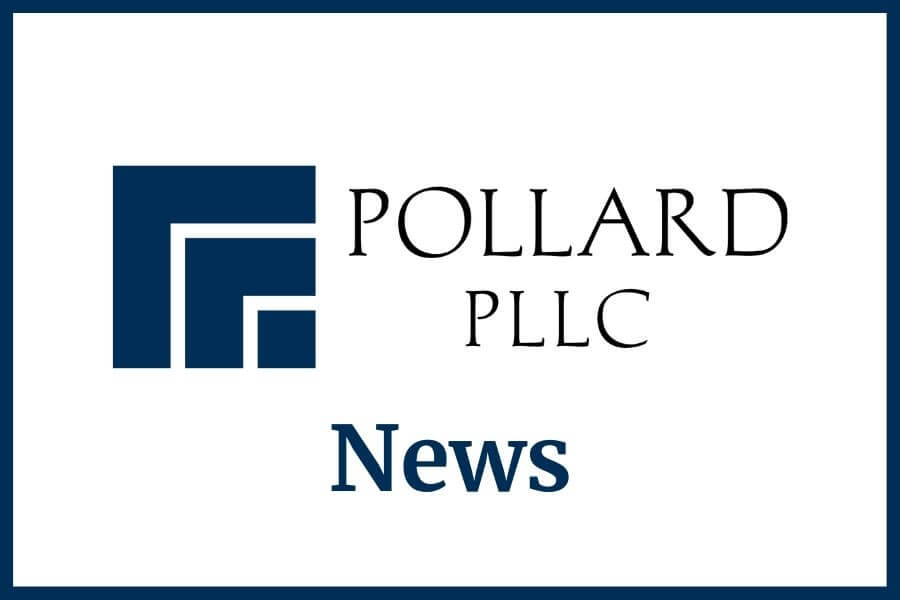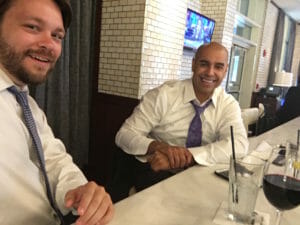Pollard PLLC has launched another major arbitration in the fight for fair competition. This is just the latest chapter in an ongoing dispute between Federated National Holding Company, a publicly traded Florida homeowners insurance company, and its former Chief Financial Officer, Peter Prygelski.
Federated specializes in Florida admitted homeowners’ insurance policies and underwrote approximately $600,000,000 in gross premiums in 2016. Prygelski worked for Federated from 2007 until 2016. In January of this year, after separating from Federated, Prygelski went to work for another company, which is primarily a wholesaler and service provider to other insurers. When Federated learned that Mr. Prygelski had started working for the new company, they filed suit.
Federated’s lawsuit argues that it Prygelski’s new company are competitors. The Firm contends otherwise. While Federated writes admitted homeowners’ policies, the new company underwrites non-admitted homeowners’ policies. These two markets are, by law, legally separate. As the Defendant views it, there is at most a 5% overlap in the respective businesses of Federated and the new company. In the past 10 years, Federated never once mentioned the new company as a competitor in any of its board meetings (which are public) or reports to its shareholders. Instead, Federated has long maintained that its true competitors are Citizens Property Insurance Corporation, Universal Property and Casualty Insurance Company, Security First Insurance Company, and St. Johns Insurance Company, Inc. Throughout the past decade, the new company has never appeared as one of the more than thirty competitors that Federated has listed in its SEC Annual Reports. And yet Federated has declared Mr. Prygelski’s employment with a perhaps 5% competitor to be an absolute emergency.
Just one week after filing suit on March 2, 2017, Federated filed an emergency motion for a temporary injunction. The Firm countered with a motion to dismiss in favor of arbitration on March 29, 2017. Federated’s complaint alleged breaches of multiple contracts, including one that contained a broad arbitration provision. Although that arbitration provision contained an attempted carve out giving the courts jurisdiction to enforce non-compete provisions, the Firm maintains that – as drafted – everything must first go to the arbitrators. In Defendant’s Motion to Dismiss and Compel Arbitration, the Firm argues that the operative agreement incorporates the American Arbitration Association “rules and guidelines” by reference. As a result, any disputes over the arbitrator’s jurisdiction or the scope of the arbitration must first be resolved by the arbitrator. This is pursuant to AAA Rule 7(a). Further, Defendant argues that a determination of enforceability by the arbitrators is necessary before a court can enforce any restrictions.
The Court held an injunction hearing on April 3, 2017. Pollard first touched upon arbitration, arguing: “The commercial rules, and indeed the employment rules, and all of the other AAA rules, indicate that the arbitrator decides the scope of his or her jurisdiction. So as a preliminary matter, the entire controversy must go to arbitration. The arbitrator may then rule on what is to be arbitrated and what is to go to court.” Moving to the merits, Pollard argued: “The Florida Non-Compete Law is codified in Section 542.335, which is the Florida Anti-Trust Act. There is a reason for that. It is because restraints of trade historically, in common law and then under the Sherman Act, were considered illegal. And non-compete agreements represent an exception to that rule, provided they are necessary to protect a legitimate business interest. And the Florida appellate courts, including particularly the Fourth DCA and the Fifth DCA, have been incredibly aggressive in their scrutiny of non-compete agreements, demanding time and time again that there must be, at bottom, a legitimate business interest.”
Federated’s primary source of testimony came from its CEO, Michael Braun, who struggled to explain how Prygelski’s new company and Federated compete and was unable to identify any money lost, any trade secrets misappropriated, or any business relationships affected by Mr. Prygelski’s employment at the new company. Even Federated’s Chairman of the Board, Bruce Simberg, Esq., apparently maintains the position that the new company and Federated do not compete in any significant way.
Moreover, Mr. Braun’s story changes from one moment to the next. Mr. Braun stated at one point: “He served as the CFO for approximately eight years and had complete access to everything that we do within the building and the company, every success, every failure.” Later in the hearing, however, he explained that Mr. Prygelski would be “excused” from confidential meetings between board members and auditors.
Cross-examining Mr. Braun, Pollard asked:
Mr. Braun, as you sit there today on the stand, have the actions of Mr. Prygelski in the market place cost you a single dollar that you can readily identify?
Mr. Braun responded:
No, I cannot readily identify that, not at all.
Federated’s strange litigation tactics do not stop there. By way of example, eleven days after the Injunction Hearing, Federated moved to re-open the hearing to introduce Mr. Prygelski’s resume from 2013, a document Federated has long had in its poesession. Defendant did not oppose this motion but argued that previously unavailable defense witnesses should be permitted to testify any re-opened hearing. Strangely, in response to Mr. Prygelski’s assent to re-opening the hearing for more evidence, Federated’s counsel attended a hearing on its motion to reopen and – at that very hearing – abruptly withdrew its motion. Presumably, this withdrawal was a reaction to the possibility that Defendant could present damning testimony at a re-opened hearing. Among the witnesses Defendant proposed to call: Bruce Simberg of Conroy Simberg. In another interesting twist: Conroy Simberg represents a subsidiary of the new company (Defendant’s new employer) in insurance claim disputes.
Ultimately, Federated seeks is pressing for two remedies: First, Federated wants to bar the Defendant from working for any company in the broader insurance industry and seeks a return of various severance payments Federated made to the Defendant.
Mr. Prygelski, on the other hand, wants only what Federated and he agreed upon. He has demanded that the parties go to arbitration, and he seeks two simple declarations by the arbitrators and the Court: That he can continue working at the new company, which barely competes with Federated and where there is absolutely no threat of unfair competition, and that he is entitled to the separation payments that the parties agreed to when he left Federated.
Quoting Pollard: “Non-compete agreements are restraints of trade. Unless they are necessary to protect a legitimate business interest, they are unenforceable, period. Federated has no legitimate business interest. At most, there’s a 5% overlap between Federated’s business and the business of Mr. Prygelski’s new company. They’re not even competitors. In my opinion, Federated’s lawyers are driving this case. This is yet another example of lawyer-driven litigation that serves no business purpose.”
Pollard PLLC is a litigation boutique based in Fort Lauderdale, Florida. The firm and its attorneys have extensive experience litigating complex, high-stakes non-compete, trade secret, trademark and unfair competition claims. For more information call 954-332-2380.


